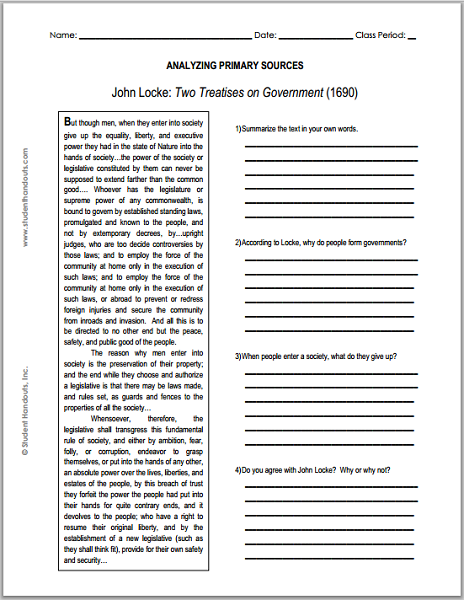But though men, when
they enter into society give up the equality, liberty, and
executive power they had in the state of Nature into the hands
of society…the power of the society or legislative constituted
by them can never be supposed to extend farther than the common
good…. Whoever has the legislature or supreme power of any
commonwealth, is bound to govern by established standing laws,
promulgated and known to the people, and not by extemporary
decrees, by…upright judges, who are too decide controversies by
those laws; and to employ the force of the community at home
only in the execution of such laws; and to employ the force of
the community at home only in the execution of such laws, or
abroad to prevent or redress foreign injuries and secure the
community from inroads and invasion. And all this is to be
directed to no other end but the peace, safety, and public good
of the people.
The reason why men enter into society is
the preservation of their property; and the end while they
choose and authorize a legislative is that there may be laws
made, and rules set, as guards and fences to the properties of
all the society…
Whensoever, therefore, the legislative
shall transgress this fundamental rule of society, and either by
ambition, fear, folly, or corruption, endeavor to grasp
themselves, or put into the hands of any other, an absolute
power over the lives, liberties, and estates of the people, by
this breach of trust they forfeit the power the people had put
into their hands for quite contrary ends, and it devolves to the
people; who have a right to resume their original liberty, and
by the establishment of a new legislative (such as they shall
think fit), provide for their own safety and security… |











